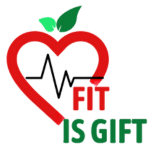At Fit is Gift)– The Truth about, Are Protein Shakes Healthy for Breakfast
- Are protein drinks good for breakfast, even though they might be a healthy supplement to a balanced diet?
- Do Protein Shakes Contain Too Much Sugar?
The consumption of protein smoothies has become more common as a convenient and speedy method of increasing one’s daily protein consumption, particularly among active people who lead busy lives and sports.
Protein shakes for breakfast are still debated in the ever-changing world of health and well-being. With so many viewpoints and facts, scientific research is essential.
Also Read:
How To Make Healthy Vegan Breakfast Ideas For Weight Loss
This article discusses protein shakes as a morning meal option, including its nutritional benefits and drawbacks.
We want to help you decide if protein shakes are right for you, whether you’re a fitness buff wanting to optimize your diet or a busy person looking for a quick and easy breakfast.
Let’s learn how protein shakes fit into your health and nutrition goals.
Pros & Cons of Protein Shakes for Healthy Breakfast
Let’s look at the benefits as well as the potential drawbacks of including protein shakes in your daily routine.
The Pros of Protein Shakes for Breakfast:
Protein shakes are a healthy and easy breakfast alternative for many health-conscious people since they assist in muscle maintenance, hunger control, and nutritional intake.
Let’s discuss the pros of protein shakes for breakfast
Convenient Source of Protein:
Protein smoothies are a quick and easy way to boost your daily protein consumption without sacrificing taste or nutrition. Protein is crucial for building and repairing muscle, boosting metabolism, and keeping you feeling full.
Also Read:
The Most Healthy No Sugar Breakfast for Better Energy
Supports Weight Management:
Benefits of Efforts to Maintain a Healthy Weight Research has shown that eating a high-protein breakfast will help you feel full longer and consume fewer calories the rest of the day.
Quick and Portable:
Protein shakes are great for those mornings when you’re in a rush and don’t have much time to mix together the ingredients.
Versatility:
Protein shakes are convenient since they can be made with a wide variety of ingredients and flavored to suit any palate or dietary restriction.
Post-Workout Recovery:
Exercisers who consume a protein shake after their workout report faster muscle repair and greater glycogen replenishment.
Also Read:
How to Make Healthy Peanut Butter Breakfast Bars
The Downsides of Morning Protein Shakes:
Morning protein smoothies have pros and cons, like any diet trend. These smoothies can improve protein intake quickly, but they may harm your health.
This article discusses the drawbacks of morning protein drinks, including side effects, dietary imbalances, and health concerns.
Understanding these drawbacks might help you decide if protein shakes are ideal for your breakfast routine, balancing convenience and good nutrition.
Let’s examine how morning protein shakes may affect your health goals and how to overcome them.
Lack of Other Nutrients:
While protein drinks might provide a rapid source of protein, they may be lacking in the other elements that can be found in a well-rounded breakfast consisting of whole foods.
Added Sugars and Artificial Ingredients:
Some commercial protein smoothies may have artificial ingredients like sugar or sweeteners that negate their intended health advantages.
Incomplete Nutrition:
An insufficient intake of fiber, vitamins, and minerals may result from relying entirely on protein shakes for breakfast.
Digestive Issues:
Some people experience pain or bloating after ingesting protein shakes on an empty stomach first thing in the morning.
Also Read:
Popular Healthy Asian Breakfast For Weight Loss
Tips for Choosing and Using Protein Shakes Wisely:
Read Labels Carefully:
Take the Time to Read the labels, and choose low-sugar, artificial-ingredient protein shakes. Find a smoothie that uses natural sweeteners and has protein from whole foods.
Supplement, Not Substitute:
Protein drinks should be used as a complement to your diet rather than as a replacement for whole foods.
Blend with Whole Foods:
Add vitamins, minerals, and fiber to your protein shake by combining it with whole foods like fruits, vegetables, nut butter, and seeds.
Rotate Protein Sources:
Switch Up Your Protein Shake Ingredients. Use whey, pea, hemp, soy, or brown rice protein, among others, to get the nutritional benefits of a wide range of amino acids and other compounds.
Consider Homemade Options:
You can control the quality of the ingredients and cut down on additives by preparing your own protein shakes at home.
Also Read:
How To Keep Your Kidneys Safe In The Summer Months
Bottom Line:
When taken moderately and in addition to a healthy diet, protein smoothies may be a beneficial part of your morning routine.
Particularly for people with hectic schedules or high-intensity routines, they provide a simple and fast approach to increasing protein consumption.
Protein smoothies are convenient, but they shouldn’t be used in place of healthy meals. Include your protein shake in a balanced breakfast that also includes fresh fruit, vegetables, whole grains, and healthy fats.
If you have unique dietary needs or health issues, it is important to talk to your doctor or a trained dietitian before making any major changes to your diet.

